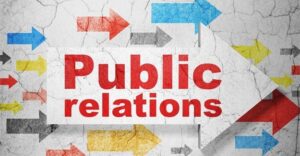Here are 15 successful tech PR campaigns, illustrating various strategies and tactics that worked well in the tech industry:
- Slack’s Early Adopters Campaign
Slack targeted early adopters in the tech community to build buzz around their communication platform. They offered exclusive access and personal demos to influential figures in tech, which led to organic word-of-mouth promotion and media coverage.
- Mailchimp’s “Did You Mean Mailchimp?” Campaign
Mailchimp cleverly played on its unique name by creating a campaign that highlighted common misspellings and misconceptions about the brand. This not only generated media coverage but also drove user engagement.
- Trello’s Product Hunt Launch
Trello used Product Hunt to launch their project management tool, gaining significant attention from early adopters and tech enthusiasts. The exposure on Product Hunt helped them build a strong user base and secure further press coverage.
- Zapier’s “Productivity” Blog Series
Zapier leveraged a blog series focusing on productivity tips and automation hacks. By providing valuable content and showcasing their tool’s capabilities, they attracted media attention and increased their user base.
- Gusto’s “People Love Gusto” Campaign
Gusto highlighted customer testimonials and success stories through a campaign that showcased real-life examples of how their HR software improved small businesses. This approach led to positive media coverage and user trust.
- Asana’s “Workplace Wellbeing” Initiative
Asana launched a campaign around workplace wellbeing and productivity, sharing research and insights about managing work effectively. They collaborated with industry experts and media to amplify their message.
- Stripe’s “Atlas” Launch
Stripe’s Atlas, a tool for starting a global company, was introduced with a focused PR strategy that included partnerships with startup incubators and influential tech blogs. The campaign helped Stripe position itself as a key player in the startup ecosystem.
- Notion’s “Build in Public” Strategy
Notion embraced transparency by sharing their product development process openly with their community. This approach fostered a strong relationship with users and gained significant media attention as they demonstrated their commitment to user feedback.
- Figma’s “Design Systems” Webinars
Figma hosted a series of webinars and workshops on design systems, showcasing their tool’s capabilities while providing valuable insights to the design community. This helped them build authority and drive interest in their product.
- HubSpot’s “Inbound” Conference
HubSpot’s Inbound Conference grew into a major event for marketers and sales professionals. By creating a high-profile conference with notable speakers and valuable content, HubSpot boosted their brand visibility and generated extensive media coverage.
- Robinhood’s “Commission-Free Trading” Campaign
Robinhood differentiated itself by promoting its commission-free trading model through targeted PR and marketing efforts. The campaign emphasized the cost savings and accessibility benefits, which helped them attract significant media attention and users.
- Canva’s “Design Challenge”
Canva organized a design challenge inviting users to create and submit their own designs. This campaign encouraged user-generated content and engagement while showcasing Canva’s design tools, leading to increased media coverage and brand awareness.
- GitHub’s “Octocat” Mascot Campaign
GitHub’s Octocat mascot became a symbol of their brand. They used it creatively in their marketing materials and merchandise, which helped create a memorable brand identity and attract media attention.
- Airtable’s “The Future of Work” Report
Airtable released a comprehensive report on the future of work, leveraging industry research and insights. The report attracted attention from business media and positioned Airtable as a thought leader in the workspace solutions sector.
- Squarespace’s “Super Bowl Ads”
Squarespace, a small company at the time, took a bold step by advertising during the Super Bowl. Their high-profile ads generated massive media coverage and significantly raised brand awareness, demonstrating the impact of ambitious PR strategies.
These campaigns illustrate a range of effective strategies, from leveraging influencers and unique brand identities to creating valuable content and high-profile events. For small tech companies, creativity and a clear understanding of your target audience can make a huge difference in PR success.




